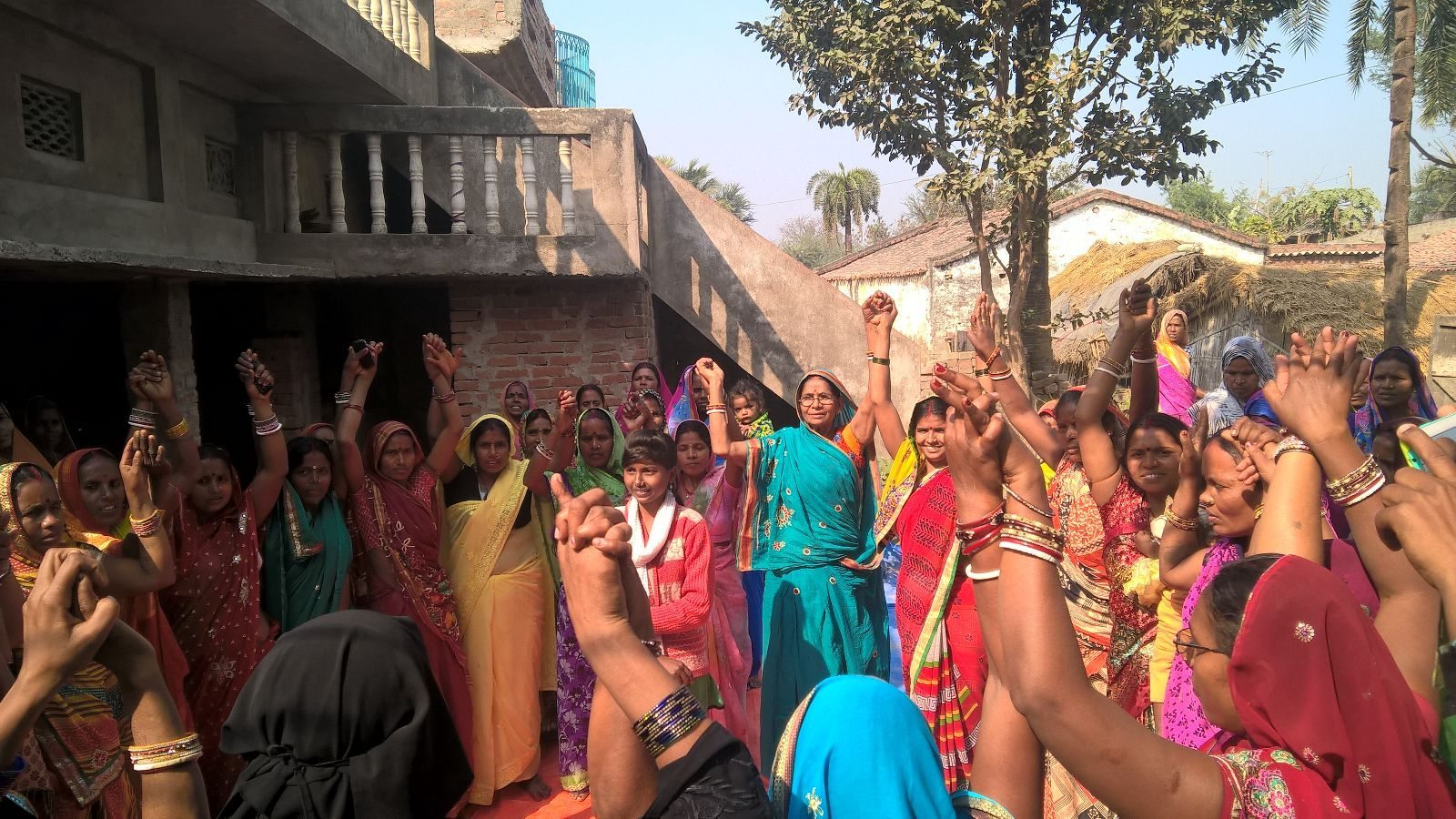By Rohit Bharti:
The Bihar government has been implementing a project since September 2007 known as the Bihar Rural Livelihoods Project (BRLP) and locally known as ‘Jeevika’. The program is funded and supported by the World Bank. Based on ‘saving-led’ self-help groups, it consists of the most socially and economically excluded women. The objective is to enhance the social and economic empowerment of the rural poor in Bihar.
It is creating a cadre as a social capital among the poor who have the potential to lead and have a role model. This creates an environment for them to come out of their daily household work. A few of you would be aware that more than 60 lakh socially and economically excluded women have been organised into self-helps groups/village organisations/cluster-level federations till March, 2016 and they are working tirelessly on a saturation approach. Jeevika provides a platform to reach out to Bihar’s most deprived women.
The model which Jeevika adopted is a social development model. This model consist of the activities associated with the livelihood model and minimalist model, besides taking up, simultaneously or at an appropriate time, collective action in issues concerning rights and entitlements. In this respect, collective action becomes one of the important tools available to those who suffer traditional as well as modern social exclusion in India.
Therefore, [envoke_twitter_link]the social development model of SHGs is incremental[/envoke_twitter_link] and moves beyond savings and credit activities. It takes the livelihood activities as a source of employment and income which can help the poor to rise above the poverty line. Since the social development of the poor is institutional as well as structured, the SHGs provide a great scope for the poor to participate in the processes of development in order to mainstream themselves.
The moment women organised into groups, gradually they realised their collective power. They started taking collective action in issues concerning rights and their own suppression. Government of Bihar prohibited alcohol on April 1, 2016 but Jeevika didis (members of the groups) had closed it in some of their own villages much earlier.
It has been widely stated that this will cost a loss of Rs. 4500 crore of revenue per annum to Bihar. Similarly many others facts are being thrown around in discussion forums these days. But among all these facts and figures, we would rarely find any figures or case studies depicting the change brought into individual and/or their families. We were shown different kinds of economic data, but why aren’t we showing any data about any positive change? Of course, it takes time for any visible social change but the liquor ban is a result of the struggles of many people to put pressure on the government. A lot of families were ruined and lots were sociologically and economically struggling with liquor habits. Those circumstances have not been taken into consideration after ban.
Bihar would definitely incur a loss of revenue in the coming years but Bihar is much in need of a shift in their development approach. Especially in the last ten years, liquor vendors opened shops in every village. This had raised the revenues of state but we have no data to show, how at many points on the social front, we went down.
Case Study 1:
The Manokamana Jeevika Mahila Gram Sangathan is active in the Thakuriniya village of Darbhanga district. 133 women members of 13 Self Help Groups are associated with this village organisation. Like many others villages of Bihar, this village too deeply suffered due to the menace of alcoholics. All 133 members unanimously took a decision in their monthly meeting to close the shop opened in their village. Under the leadership of Pinki Devi, they went to the shop owner and the local police station. They had given them in writing how liquor is polluting their village environment. But they got nothing but a hollow promise. In their next monthly meeting, they all decided to lock the shop collectively, which they did. After that, liquor shops never opened. Thakuriniya village became an alcohol-free village much before the prohibition of liquor imposed in Bihar.
Pinki Devi and the village organisation has been given an award of Rs. 1 lakh by the Bihar government for their struggle against alcohol and she has been invited to share her experience on many platforms.
Similar cases in Jeevika are spread across the 534 blocks of the 38 districts of Bihar.
Case Study 2:
Indu Devi lives in Sirsiya village, Darbhanga. She is a member of Raja Jeevika Self-Help Group and is also a member of Pragati Jeevika Mahila Gram Sangathan.
Indu’s husband was a habitual drinker and used to physically abuse her and their kids after drinking. Even the neighbors were aware of it. This was the story for a long time.
At last she shared her trouble to the groups. Gradually each and every member opened up and they found that they were all suffering from the same problem. They all agreed to support each other. Collectively, they warned her husband against abusing his wife and kids. This was shared with the village organisation and it finally reached the cluster-level federation. Collective action was taken against the selling of liquor with around 5000 Jeevika didis taking out awareness rallies on March 6, 2016, to demand a ban on liquor.
Conclusion:
Since September, 2007, Jeevika didis have been raising slogans against the sale of liquor in their areas and the entire state. Women have always been on the forefront of the struggle, perhaps because women seem to be on the receiving end of the impact of alcoholism. Swami Vivekananda has rightly said, “There is no chance for welfare of the world unless the condition of women is improved. It is not possible for a bird to fly on only one wing”
“There is no tool for development more effective than the empowerment of women.” – Kofi Annan, former UN Secretary General
